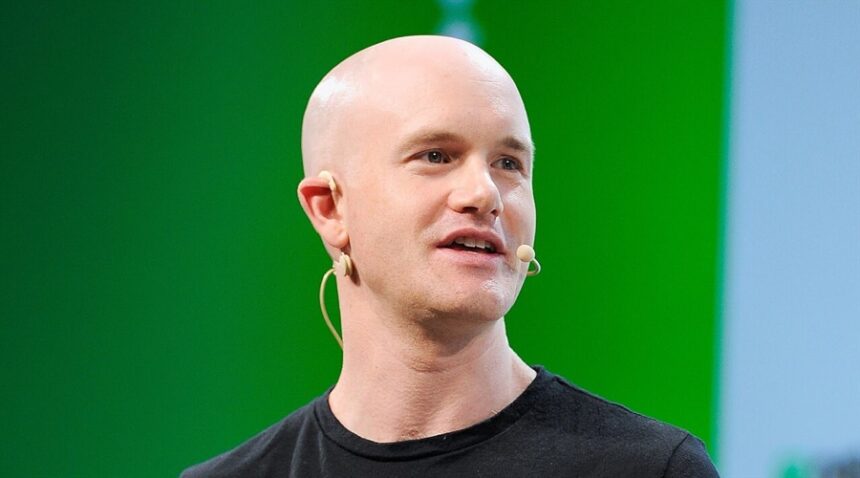In a recent interview, Coinbase CEO Brian Armstrong unveiled a bold initiative aimed at evolving Coinbase from a traditional cryptocurrency exchange into a comprehensive financial “super app.” This transformation seeks to reshape banking experiences for millions of users, by integrating banking and fintech services into its platform. Armstrong articulated this vision on Fox Business, emphasizing the company’s ambition to not only facilitate cryptocurrency trading but also to provide a full suite of financial services, including spending, savings, payments, and investments.
Armstrong stated, “We want to be a bank replacement for people, we want to be their primary financial account.” He highlighted Coinbase’s latest offering, a credit card that provides 4% Bitcoin rewards, illustrating how the platform aims to reduce traditional payment costs and enhance consumer incentives. He criticized the existing transaction fees of traditional card networks, arguing that digital payments should be substantially less expensive.
The regulatory landscape is shifting favorably for Coinbase, according to Armstrong. He noted recent legislative progress, including the passing of the GENIUS Act, which introduces crucial stablecoin regulations. Additionally, ongoing discussions in the Senate regarding the market structure aim to clarify the regulatory framework surrounding cryptocurrencies like Bitcoin and Ethereum. Armstrong compared the increasing bipartisan support for cryptocurrency regulation to a “freight train,” implying that the long-standing uncertainty surrounding regulations may soon dissipate. He believes clearer guidelines can help reconcile past conflicts between the crypto industry and regulatory bodies that often categorized many tokens as unregistered securities.
This regulatory momentum has been echoed by SEC Chairman Paul Atkins, who has initiated “Project Crypto” to modernize securities regulations for digital assets. At a recent OECD Roundtable in Paris, Atkins declared that “most crypto tokens are not securities,” urging for the innovation of super-app platforms that can merge trading, lending, and staking functionalities. He cited the European Union’s Markets in Crypto-Assets regime as a potential model for comprehensive regulation.
However, the drive towards a super app in the financial landscape faces competition from various fintech companies. Notable players like Robinhood and PayPal are also aspiring to broaden their services. Robinhood plans to launch banking services by fall 2025, expanding into estate planning and tax advice, while PayPal has been integrating savings accounts and bill pay into its digital wallet since 2021, looking to personalize user experiences based on consumer data.
Despite these advancements, Armstrong acknowledged that traditional banking institutions are pushing back against innovations in the cryptocurrency space. Some banks have lobbied against rewards programs tied to stablecoins, arguing they could destabilize conventional payment systems. He countered that consumers deserve to earn more on their funds akin to loyalty programs seen in traditional financial services.
In terms of market positioning, Armstrong expressed confidence in Coinbase’s standing as new exchanges emerge in the U.S. He emphasized that Coinbase’s substantial cryptocurrency storage gives it a unique advantage, encouraging clients to explore services beyond just trading. While he refrained from making short-term predictions on Bitcoin’s price, Armstrong speculated that there is a significant possibility for Bitcoin to reach $1 million by 2030, highlighting regulatory clarity, the proposed U.S. strategic bitcoin reserve, and institutional investment through Bitcoin ETFs as key drivers for growth.
Coinbase currently provides custody services for a sizable portion of newly established Bitcoin exchange-traded funds (ETFs), further galvanizing its role in the ongoing institutional adoption of cryptocurrency. The combination of evolving regulations and growing acceptance of digital assets positions Coinbase uniquely as it seeks to redefine the future of personal finance.







